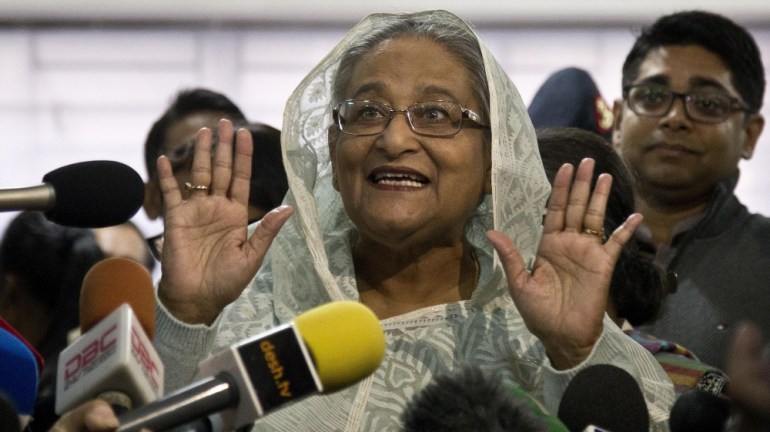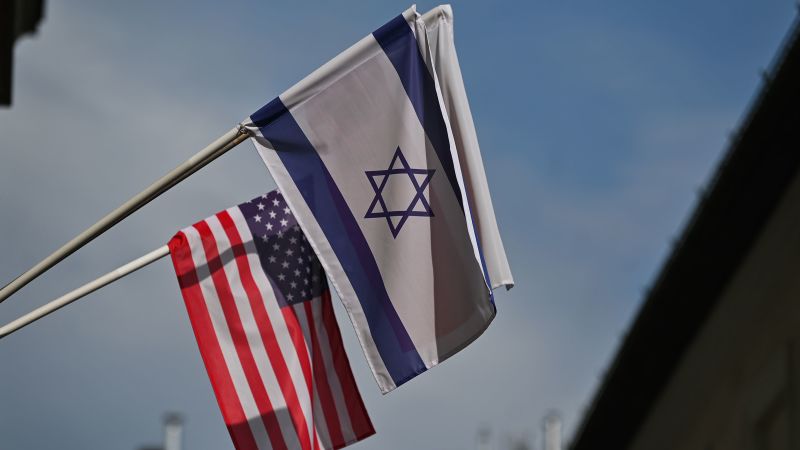Bangladesh FM says not bothered by US visa curbs, promises free elections
Dhaka, Bangladesh – Bangladesh’s foreign minister has said his country was not “bothered” by the US visa curbs on unnamed Dhaka officials for undermining the election process as part of Washington’s push for free and fair general elections slated to be held early next year.
“The US is a democracy, so are we,” AK Abdul Momen told Al Jazeera on Saturday.
“As a global power, they, of course, can exercise power over others but we are not bothered because we know how to hold an acceptable election,” he said, echoing Prime Minister Sheikh Hasina’s assertion that her government is capable of conducting free and fair elections.
The US Department of State on Thursday announced to impose visa restrictions on Bangladeshi individuals “responsible for, or complicit in, undermining the democratic election process in Bangladesh”.
A statement issued by the State Department spokesperson Matthew Miller mentioned “these individuals include members of law enforcement, the ruling party, and the political opposition” and “their immediate family may be found ineligible for entry into the United States.”

The State Department did not release any names as the “[visa]records are confidential under US law,” Bryan Schiller, US Embassy spokesperson in Bangladesh told the local media.
The visa restrictions come nearly four months after US Secretary of State Antony Blinken warned of curbs, as Washington has expressed support for “free, fair and peaceful national elections” in the South Asian nation of 160 million people.
Back then, Bangladesh’s foreign ministry had assured free and fair elections. However, the Hasina government has continued to target political opposition and activists, including the jailing of two leading human rights activists on September 14.
The last two national elections – 2014 and 2018 – were marred by vote-rigging charges and opposition boycott. The Awami League party of Prime Minister Hasina won both the elections. It has denied the elections were rigged.
The US State Department, moreover, warned that additional persons found to be responsible for, or complicit in, undermining the democratic election process in Bangladesh may also be found ineligible for US visas in the future.
Minister Momen meanwhile, said his party’s “rank and files” are not worried about the visa sanctions as most of them want to stay in this “prospering country”.
“Our voters are also not bothered because they probably are not thinking of going to the US at all.”
‘Targeted sanctions’
Tensions surrounding the upcoming national election, scheduled to be held in January next year, have already reached a boiling point, with the main opposition – the Bangladesh Nationalist Party (BNP) – and its allies, staging regular street protests.
They are demanding the installation of a neutral caretaker government to conduct the elections. However, the provision of caretaker government was nullified in 2011 by the Supreme Court. The opposition has said the court ruling was influenced by the governing Awami League, which has been in power since 2008. A caretaker administration oversaw the 2008 election.

Western powers, including the US and the European Union – the two main destinations of Bangladesh’s multibillion-dollar garment export – have repeatedly expressed concern about free and fair elections and rights violations under the current government.
Experts have argued that the latest visa sanction by the US is just a reflection of their concerns. Last year, Washington slapped sanctions on notorious Bangladesh paramilitary forces – Rapid Action Battalion – for extrajudicial killings. Dhaka has also been not invited to the two editions of the high-profile Summit for Democracy organised by President Joe Biden’s administration.
Former Bangladesh ambassador to the US, Humayun Kabir, said the visa curb is to ensure a free and fair election.
“The fact is, those who are actually impeding the fair election process should be worried as the US government, of course, did proper groundwork before imposing these sanctions,” he told Al Jazeera.
US-based Bangladesh-American geopolitical analyst Shafquat Rabbi told Al Jazeera that given the high-voltage engagement and communications coming from the US government regarding Bangladesh’s upcoming election, “It is certain that the US has made a determination rather than trying to preserve Bangladesh’s democracy, at least nominally”.
Rabbi believed, that as elections remain extremely popular in Bangladesh, the incremental cost of trying to preserve that nominally democratic culture for the US is not much. “So the US is trying using less invasive approaches like targeted sanctions,” he said.
He also said it is highly likely the US will bring more targeted sanctions, next time perhaps on Bangladesh’s business community and judiciary if the country’s democratic backsliding continues.
Opposition parties have welcomed the US step, with Rumeen Farhana, a former member of parliament from the main opposition BNP, saying that “the whole world has seen how [Awami League] had used every bit of state machinery, including bureaucracy, law enforcement and judiciary to steal elections”.
“Not once, twice,” she said.
But the international affairs secretary of the ruling Awami League party said his party was not concerned about the visa curbs.
Shammi Ahmed told Al Jazeera that the US or other global powers are “very interested” to see a “fair election” in Bangladesh as the country “is no longer a basket case, rather an emerging economic power”.
“And we have achieved this under the leadership of Sheikh Hasina,” Ahmed said.
“We have trust in our own people and we trust in elections. The ballot paper will decide our fate, not global powers,” she said.




